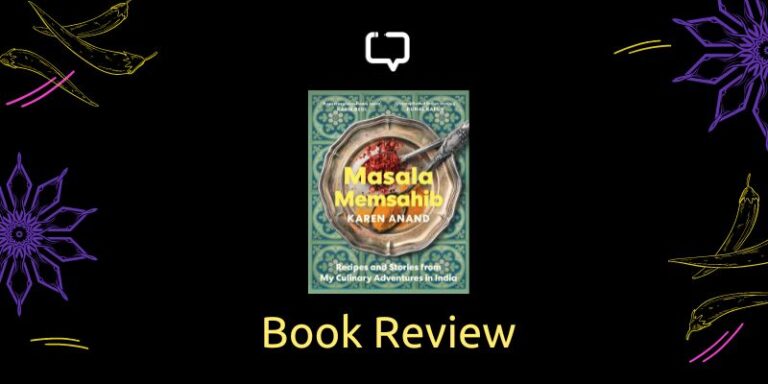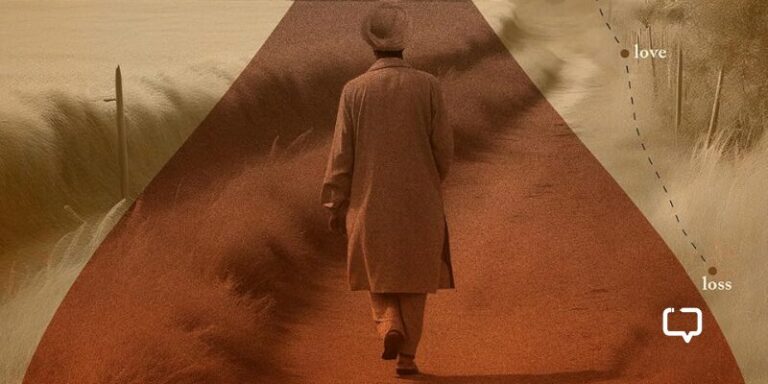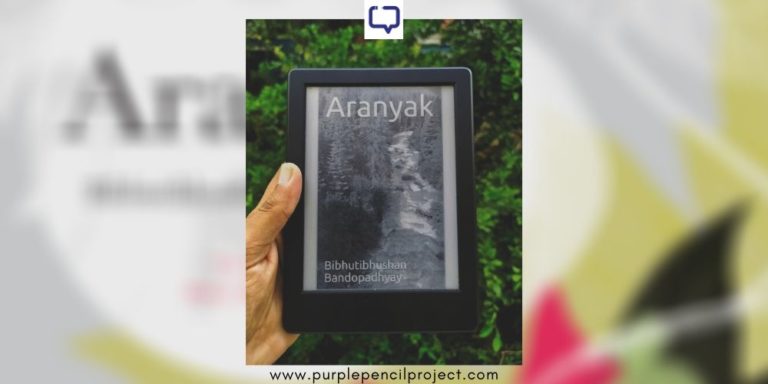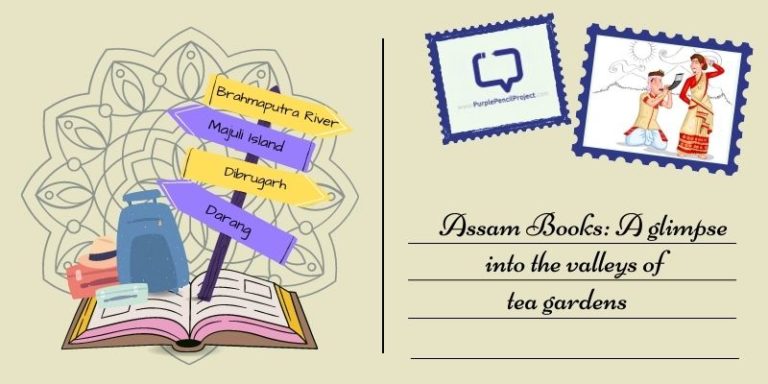I first read American Gods in my first year of college. I hadn’t quite read anyone like Gaiman — and I fell in love with him, his words, his imagination and his ability to say exactly what I wanted to, but in words and ways, I could never imagine.
We encourage you to buy books from a local bookstore. If that is not possible, please use the links on the page and support us. Thank you.
Trigger Warning — Short Fiction & Disturbances is my 6th book by him. It was a little bit of everything; some parts marvellous, some parts banal and some parts surreal.
Introduction
1. LITTLE TRIGGERS
The book comes with a, yes, a warning that within its pages lie miracles and mysteries, some terrifying and some consoling. And that there might be things that upset you, and you have been warned. It’s an unnecessary warning because if you pick a Neil Gaiman book, you know you’re not going to come out of it as the same person who went into it.
2. PRE-FLIGHT SAFETY DEMONSTRATION
“We authors, who trade in fiction for a living, are a continuum of all that we have seen and heard, and most importantly, of all that, we have read.”
3. THE LUCK OF THE DRAW
Gaiman makes a case for short stories here and these are reassuring words as I find the dedication to complete my first chapbook. A short story, I believe, is a great starter kit for writers — not daunting. But in the hands of a master like Gaiman, they can turn into fantastical experiences.
4. GENERAL APOLOGY
I don’t know why he needed to do this. Modesty and all, such drama.
Shadder
(define shadder: eye-dialect spelling of shadow)
(define eye dialect: the use of nonstandard spelling for speech to draw attention to an ironically standard pronunciation)
Look ahead of you, this book should be read under the blanket with a torch for maximum effect. I didn’t know this when I read it. I read it in open spaces like malls and parks. Not a wise decision. Let the book lurk in your life.
5. ABOUT THE STORIES IN THE BOOK (a review)
Making a Chair
A poem that is average (Gaiman writing average words was not a possibility I thought possible) but sets the tone for the rest of them. “Making a book is a little like making a chair…failure to follow these warnings can result in serious injury.”
A Lunar Labyrinth
It is inspired by Gene Wolf’s The Solar Labyrinth. It is about mazes and full moons and dogs in darkness and growls that startle. It smells of rosemary, and of stories past.
There is a garden in Vrindavan, Mathura — Nidhivan. There is a plant that grows there and it is said that if you visit the garden at night, you will go mad. My guide was old and wrinkled and in his eyes was the wisdom of yesterday. I want to go back to the garden, at night. With him.
The Thing about Cassandra
Stuart Innes makes up with Cassandra when in school and tells his friends that he dated her. Cassandra makes up a guy called Stuart Innes and years later, meets him. His story is well etched out, hers seems a little rushed.
There was a time in 2006–2007–2008 when I changed my relationship status on Facebook just to see what people would think. I didn’t have the guts to go through with the lie and I let the truth out. I shouldn’t have.
Down to a Sunless Sea
“And I put the bone on a chain to remember them both by, late at night, when the wind crashes the ocean waves and tumbles them on the sand, when the wind howls around the houses like a baby crying.”
The village is crazy. The town madman. I think the communities banish them because they’re afraid of the stories they share. Of boys eaten by sailors on a ship. Of human bones licked clean.
“The Truth is a Cave in the Black Mountains…”
A small but strong man, a greedy, old guide and a death from a decade ago. A father’s revenge. A sermon on what greed does to your soul. A cave in a Misty Isle that houses treasure for the return of the king. A fall to a slow death. Greed again.
A powerful tale, a little stretched. Don’t read it in parts.
My Last Landlady
A blank-verse about a bed and breakfast in Brighton, where holidays don’t end well for the guests. It won’t scare or spook. But it will put you off wandering alone by the beach for a while.
Adventure Story
I returned from one of the best parties of my life. My mother was more interested in what my new neighbour said to me in the lift. She saw us get out together.
Mothers hide adventures. Children follow them, instinctively.
PS: I did not like the opening paragraph.
Orange
‘It is the curse of age, that all things are reflections of other things.”
It is the curse of a widely read person, where characters are reflections of other characters, from other books and it sometimes feels that these people between the pages love to travel too, from their own story to others.
There is a highly intelligent form of the colour blue in the Hitchhiker’s Guide to the Galaxy. It might be him, or it might be something else, that came to earth and took away the highly intelligent and slightly queer form of the colour orange. She was a human. The police are still trying to figure out what happened. Have you ever filled an investigative questionnaire?
A Calendar of Tales
There is a tale for every month of the year. Some are good, others not so much. I would like to write them in a calligraphic hand and hang them up on my wall, with small, hand-drawn pictures.
Dona St. Columb, Du Maurier’s beloved protagonist of Frenchman’s Creek, might have decided she wants to, after all, keep having adventures with the love of her life. But she decides her children must never know about Anne Bonny, the pirate. So when gossip spreads, she takes up the identity of Anne Riley and starts living like a lady. Her daughter Mary was sometimes very surprised by her mother’s behaviour, especially when she started speaking about pirates.
The May tale is very intriguing, and the June tale is very sweet and reminds you that maybe growing old together is all you need. The July tale is quite literally, a reader’s paradise.
In August, he speaks about forest fires and dying in boiling waters, in September a strange force keeps bringing a girl’s ring back to her. It was her dead mother’s. She wants to get rid of it. But will her mother let her? A djinn in October finds that human life can be content with love, November is a cancer patient burning her medical records and in the last month of the year, Donna meets the future self that tells her that hope is always around the corner. You must not do stupid things, that’s all.
Donna stepped back. “I don’t want hope,” she said. “I want a home, I want somewhere warm. I want it now, not in twenty years.”
The Case of Death and Honey
Sherlock is everywhere, even in a Gaiman book. His Sherlock travels to China. It will remind you of Cumberbatch in Dr Strange.
It’s a very long, short story. Sometimes you maybe be bored. It might seem like it is going to end uninterestingly. And in the end, it might seem true.
The Man who forgot Ray Bradbury
This is a short story about the long story of humanity and its existence. It is about words and forgetting them, it’s about tales and letting them slip out of memory.
Memory is the only place civilisation exists. What if everyone forgot everything they ever learned?
“Perhaps you do not know that Mars is heaven, where our beloved goes to wait for us and then consume us in the night.”
Jerusalem
Think of an old, ancestral home. How stuffy it feels. The walls are heavier, the ground deeper, the rooms feel like ghosts of your family still lurk there. Now think of an entire town that is ancestral to a whole section of people — it is dry sand and golden glow. It is magical and maddening. So we remove the old, to save our sanity. We move away. We think that will save us.
“In this place, the walls of the world are thin. We can hear Him calling to us…”
We lack the strength to believe so fully.
Click-Clack the Rattlebag
Children have always been the symbol of innocence. That’s why there are ghost stories with creepy children — it shakes you through and through. And when a child takes his sister’s new boyfriend to his room and asks him to tell him a story about click-clack the rattle bag — a story of bones rattling in the wind, you will be scared.
An Invocation of Incuriousity
If the world was ending and you had the chance to be a slave in another life, a million years before you were born, would you take it?
Or you could do something heroic and change the scheme of things and come back to make money from the time travel.
“And Weep, Like Alexander.”
If you had the choice to undo one invention, what would it be?
Nothing O’Clock
Time Lords and Tardis and Kin. Doctor Who stories are crazy-wazy stuff. I haven’t read others. This one was just about okay.
Diamonds and Pearls — A Fairy Tale
Step-mothers and step-daughters and the importance of being nice. As old as it gets. As important as it gets.
The Return of the Thin White Duke
A long-ish story about the dawn of days and going back to misty fields. A little overdone by this point. Invincible Duke has stopped caring for anything and seeks the advice of ancient wisdom to care again.
“For the first time since his youth, he had something to lose, and the discovery of that made him young again.”
It is a story wrongly placed in the collection. For it is a gem. If you read carefully, you will find a paragraph that tells you Descartes’ philosophy in a few sentences. It is Gaiman’s best paragraph in the book. Find it.
Feminine Endings
“It would not be hard reconstructing a life from a computer…” A creepy thought.
A slightly creepy stalker story.
But a wonderful reminder that stillness is far greater than constant motion. That gentle waves will sometimes engulf you more than high tides. That habit and routine require only small changes to make it all worth it.
Observing the Formalities
Manners maketh man, Colin Firth told us in the Kingsmen. Manners are all, Gaiman tells us in this poem. (He should not try and write those.) Old age is dangerous, politeness is as quiet as a grave. The new do not want the old presence where they want to be raucous. They want them at funerals.
The Sleeper and the Spindle
A retelling of Snow-white. A story of a queen’s kiss to wake up the princess. I read it once, the one illustrated by Chris Riddell. It is better than reading it in plain text.
In Relig Odhrain
A good poem. About Saint Oran and Saint Columba. About Oran of Iona.
“God is not what you imagine. Nor is Hell and nor is Heaven.”
Good words to read on 27th October.
Black Dog
Shadow Moon is a character from American Gods. Here, he is an American tourist travelling to the English countryside and lands up staying with a couple. They have a twisted past and Shadow seems to bring that back. Do I sense a story about bipolar?
He makes out with a ghost, and his host is a jealous killer of people when Shadow says he met someone who was supposed to be dead, Ollie, his host, tries to kill him too. Moira is Ollie’s wife. Shadow is called Mr American and you think that’s a fine reference.
It’s not a Gateway to Hell, but it gets you thinking. I tried to understand the ‘why’ of this story — the symbols and the meanings. And then I re-read it. I had more fun that way. It’s a fitting finale to the collection and my favourite story.
Favourite Quote: “I want to go back to the beginning,” he said. “When it started. I want to stand there in the light of the universe waking to itself, the dawn of everything. If I’m going to be blinded, let it be by that. I want to be where the suns are a-borning. This ancient light is not bright enough for me.
Recommended Age Group: 18 years and above. Or maybe 16, times are moving so fast.
Sakhi is a student of literature, an aspiring writer and a partner at www.purplepencilproject.com. She has a degree in journalism and is pursuing her master’s from Mithibai, Mumbai.





















